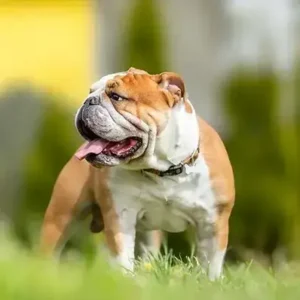Yorkshire terrier History/Origin
During the Industrial Revolution in England, Scottish workers migrated to Yorkshire for employment in coal mines, textile mills, and factories. Bringing along Clydesdale Terriers or Paisley Terriers, larger than today’s Yorkshire Terriers, primarily for rat-catching in the mills.
These dogs were likely crossbred with other terriers like the English Black and Tan Toy Terrier and the Skye Terrier. The Waterside Terrier, a small dog with a long blue-gray coat, might have also contributed.
In 1861, a Yorkshire Terrier was showcased as a “broken-haired Scotch Terrier.” Huddersfield Ben, born in 1865, gained fame as a show dog and is seen as the father of modern Yorkshire Terriers.
These purebred dogs adopted the name “Yorkshire Terrier” in 1870, reflecting its development in Yorkshire. Registered in the British Kennel Club stud book in 1874, the first breed club formed in England in 1898.
Yorkshire Terrier History- Source: AKC.org
The earliest recorded birth of a Yorkshire Terrier in the U.S. dates to 1872. Allowed to participate in dog shows from 1878, with classes initially categorized by weight. The American Kennel Club (AKC) recognizes the Yorkshire Terrier under the Toy Group.
Yorkshire terrier Personality
The Yorkshire Terrier is one of the dog breeds that is both smart and self-assured. Despite its small size, it possesses a spirited terrier nature. These dogs exhibit a wide range of personalities. Some are affectionate and perky, eager to accompany their owners all day long. Others are more mischievous, outgoing, and curious, exploring everything in their path.
Setting boundaries is essential with Yorkies. Spoiling them can lead to behavioral issues. Starting training during puppyhood yields better results than trying to correct bad habits later on. Socialization is crucial for Yorkies, just like any other dog. Introducing them to various people, sights, sounds, and experiences from a young age ensures they become friendly and well-rounded pets.
- Potential Challenges with Yorkshire Terriers
Yorkshire Terriers may exhibit behaviors like excessive barking, stubbornness, and a tendency to chase or dig. Addressing these challenges requires consistent training, early socialization, and providing mental stimulation. Owners should also be aware of potential separation anxiety and take steps to gradually acclimate their Yorkie to being alone.
Yorkshire Terrier Appearance
Yorkshire Terriers are notably petite and delicate dogs, with males usually displaying slightly more muscularity and size than females.
Yorkshire Terriers showcase other unique physical traits, such as a small head with a dainty muzzle and keen almond-shaped eyes. Their ears are V-shaped and typically rest close to their cheeks. These physical attributes contribute to their distinctive appearance as charming and alert dogs.
- Size
Yorkshire Terriers should ideally stand 8 to 9 inches at the shoulder and weigh no more than seven pounds, with a preference for four to six pounds. However, Yorkies can vary in size.
It’s common for a litter to include one Yorkie weighing under four pounds, another weighing five or six pounds, and one growing to be 12 to 15 pounds.
- Coat color
The Yorkshire Terrier is renowned for its long, silky, and fine-textured coat, which is characteristic of the breed. This distinctive coat typically comes in silver, blue, and tan colors, adding to the Yorkie’s charm and elegance. It’s a hallmark feature that sets them apart and contributes to their unique appeal.
Yorkshire Terrier Gender Differences
Since both female and male Yorkshire Terriers are very small dogs, with little weight or size difference between the two genders, they typically range between 3 and 7 pounds. The only difference they have is temperament.
- Yorkshire Terrier Temperament differences
Just like their male counterparts, female Yorkshire Terriers are highly affectionate dogs. However, unlike males, females aren’t as clingy, so they may not feel a need to be around you all the time. Once they’ve gotten the attention they want, they may not hang around just lying in your lap. Sometimes they can have a bit of an independent streak, preferring to do their own thing instead of spending all their time near you.
Yorkshire Terrier Feed/Nutrition
The recommended daily amount for a Yorkshire Terrier is 1/2 to 3/4 cup of high-quality dry food a day, divided into two meals. However, how much your adult dog eats depends on various factors such as size, age, build, metabolism, and activity level. Just like people, dogs are individuals, and their dietary needs vary. Active dogs will require more food compared to less active ones.
Additionally, the quality of dog food matters, as better-quality food provides more nourishment, requiring less quantity. It’s crucial to prevent your Yorkie from becoming overweight, as excess weight is not ideal for this breed’s elegant physique. To maintain your Yorkie’s optimal weight, measure his food and feed him twice a day instead of free-feeding.
You can also incorporate bananas and apples as healthy treats, providing fiber, vitamins, and minerals.
Yorkshire Terrier Health
Yorkies are generally healthy, but like all breeds, they’re prone to certain health conditions. When purchasing a puppy, it’s essential to find a reputable breeder who can provide health clearances for both the puppy’s parents. These clearances confirm that the dogs have been tested for and cleared of specific conditions.
Regular veterinary check-ups are vital for monitoring your Yorkie’s health and addressing any concerns promptly. Here are some common health issues Yorkies may face:
- Patellar Luxation: Also known as “slipped stifles,” this condition occurs when the patella, or knee cap, is not properly lined up, leading to lameness or abnormal gait. It can range from occasional luxation to severe misalignment requiring surgical repair.
- Progressive Retinal Atrophy: This degenerative eye disorder leads to blindness due to the loss of photoreceptors. Reputable breeders have their dogs’ eyes certified annually by a veterinary ophthalmologist.
- Hypoglycemia: Yorkies, like many small breed dogs, are susceptible to hypoglycemia, which can cause weakness, confusion, and seizure-like episodes. Preventive measures and treatment options should be discussed with a vet.
- Collapsed Trachea: The trachea can easily collapse, leading to a chronic, dry cough. Treatment options include medical or surgical intervention.
- Reverse Sneezing: Often mistaken for a collapsed trachea, reverse sneezing is less serious and typically resolves on its own. It can occur when a dog is excited or when irritants are present in the air.
- Portosystemic Shunt(PSS): This abnormal blood flow between the liver and body can lead to various symptoms, including neurobehavioral abnormalities and stunted growth. Corrective surgery and a specialized diet may be necessary for management.
- Syringomyelia(SM): A severe condition affecting the spinal cord, SM can cause symptoms ranging from mild discomfort to partial paralysis. It’s commonly seen in toy breeds but can affect any dog.
Yorkshire Terrier Care and Grooming
Yorkshire Terriers enjoy outdoor activities like walking and playing, but their indoor antics keep them well-exercised. They are receptive to training, particularly if it involves attention or performing tricks.
Housetraining can be a challenge due to their small accidents being easily overlooked, but consistent training and positive reinforcement yield excellent results.
Yorkies are best suited for indoor living and may struggle with extreme temperatures. Some owners paper-train them to avoid outdoor exposure to harsh weather.
Their long, silky coats are straight and show dogs have floor-length hair. They shed minimally and transition from black to blue and tan as they mature, with hormonal changes affecting their color.
Regular grooming is essential for Yorkies, including daily brushing to prevent matting and dental care to address tartar buildup. Weekly baths and nail trims maintain their coat and prevent discomfort.
Frequent inspections of ears and anal areas are necessary, and early grooming introduction as puppies helps them acclimate to handling. Regular exams and grooming ensure early detection of health issues and maintain their overall well-being.
Additionally, crate training your dog helps establish a safe space and aids in house training, making daily routines smoother.
Yorkshire Terrier Rescue Groups
If you’re considering adopting a Yorkshire Terrier, there are several rescue organizations dedicated to this breed. These groups work tirelessly to provide a second chance for Yorkies in need of a loving home.
Yorkshire Terrier Price
The price of a Yorkshire Terrier typically ranges from $600 to $2,500, depending on factors such as breeder reputation, pedigree, and location.
If you’re considering adding a Yorkshire Terrier to your family, it’s crucial to research and choose reputable breeders. Ethical breeders prioritize the health and well-being of their dogs, conducting necessary health tests and maintaining proper breeding practices.
Interesting Facts
Best For
Yorkshire Terriers are best suited for individuals or households living in apartments or homes without large yards. They form strong bonds with their owners and thrive in environments where they receive attention and care. Their small size and low exercise needs make them particularly suitable for seniors, singles, or couples who can dedicate time to their pets.
Top Names
| Male Yorkshire Terriers | Female Yorkshire Terriers |
| Rocky | Bella |
| Max | Daisy |
| Charlie | Lucy |
| Buddy | Molly |
| Teddy | Sophie |









 Yorkshire Terrier History- Source:
Yorkshire Terrier History- Source: 

 Silver Yorkshire Terrier – Source:
Silver Yorkshire Terrier – Source:  Black and tan Yorkshire Terrier – Source:
Black and tan Yorkshire Terrier – Source:  Blue and tan Yorkshire Terrier – Source:
Blue and tan Yorkshire Terrier – Source: 
 The Wizard of Oz- Source:
The Wizard of Oz- Source:  The Nanny- Source:
The Nanny- Source: 






